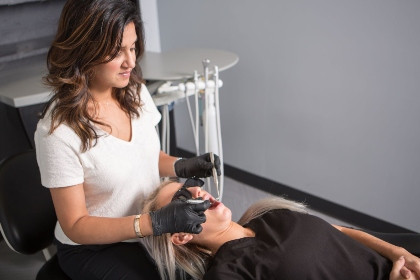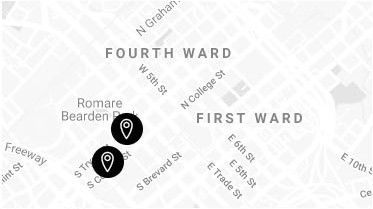Pre/Post-Op Instructions

 BOTOX®/Dermal Fillers
BOTOX®/Dermal Fillers
Pre-Treatment Instructions
- Do NOT consume alcoholic beverages at least 24 hours prior to treatment (alcohol may thin the blood and increase the risk of bruising)
- Avoid anti-inflammatory/blood-thinning medications, if possible for a period of 2 weeks before treatment. Medications and supplements such as aspirin, vitamin E, ginkgo biloba, ginseng, St. John’s Wort, Omega 3/Fish Oil supplements, Ibuprofen, Motrin, Advil, Aleve, and other NSAIDS have a blood-thinning effect and can increase the risk of bruising and swelling after injections.
- Schedule your dermal filler and BOTOX® appointment at least 2 weeks prior to a special event that you may be attending, such as a wedding or a vacation. Results from the Dermal Filler and Botox injections will take approximately 4 to 7 days to appear. Also bruising and swelling may be apparent in that time period.
- Discontinue Retin-A 2 days before and 2 days after treatment.
- You are not a candidate if you are pregnant or breastfeeding.
Post-Treatment: BOTOX®
- Do NOT manipulate the treated area for 3 hours following treatment. Do NOT receive facial treatment after BOTOX® injections for at least 10 days. Ask your provider if you are not sure about the time frame of certain services.
- Do NOT lie down for 4 hours after your BOTOX® treatment.
- It can take approximately 10 to 14 days for results to be seen. If the desired result is not seen after 3 weeks of your treatment you may need additional BOTOX®. You are only charged for the amount of product used. Therefore, you will be charged for any additional product used during any touch-up or subsequent appointments.
- Do NOT perform activities involving straining, heavy lifting, or vigorous exercise for 4 hours after treatment.
Post-Treatment Instructions: Dermal Filler
- Avoid significant movement or massage of the treated area. Unless instructed by the provider.
- Avoid strenuous exercise for 24 hours.
- Avoid extensive sun for 72 hours.
- Avoid consuming excess amounts of alcohol or salts to avoid excess swelling.
- If you have swelling you may apply a cool compress for 15 minutes each hour.
- Use Tylenol for discomfort.
- Try to sleep face up and slightly elevated if you experience swelling.
Crowns
- You will be numb for 2-3 hours. Don’t eat anything hard while numb so you don’t hurt yourself.
- Modify your flossing, and do not eat anything hard or chewy directly on the temporary so it doesn’t pop or break off.
- Your tooth may feel a little different or sore. This is normal and should resolve on its own within 2 weeks.
Oral surgery
Pre-Treatment Instructions
Pre-Operative Instructions for Patients Scheduled for Intravenous Sedation and Oral Surgery.
- Please DO NOT eat or drink anything after midnight the night before your surgery. But do drink extra water to hydrate the day before surgery until bedtime
- Bring someone with you at the time of surgery that will be able to drive you home, receive your Post-Operative instructions, get your prescriptions, and care for you after surgery. That person MUST stay in the office during the procedure or there will be an additional charge of $100.00 if your escort leaves the office.
- Patient MUST pre-pay before the surgery can be scheduled.
- Patients under the age of 18 years MUST be accompanied by a parent or legal guardian in order to sign the consent form.
- If you wear contact lenses, leave them out and just wear glasses on the day of surgery.
- Please refrain from wearing any make-up, artificial nails or nail polish.
- Please wear short-sleeved shirts/sweaters that will allow easy access to your arms for the initiation of an IV.
- Allow yourself, at minimum the remainder of the surgery day for rest and recuperation. Activity in the days following surgery and sedation will be at your discretion.
- Do not hesitate – to call the office at 704.414.5510, if any questions or concerns arise.
Post-Op Instructions
DAY OF ORAL SURGERY
FIRST HOUR: Bite down gently but FIRMLY on the gauze packs that have been placed over the extraction areas, making sure that they stay in place. DO NOT change them for the first hour, unless the bleeding is not controlled. The packs may be gently removed after ONE HOUR. If active bleeding persists, place enough new gauze to maintain pressure over the extraction site for another 30 minutes. The gauze may then be changed as necessary (typically every 30-45 minutes). It is best to moisten the gauze with tap water and loosely fluff for more comfortable positioning.
USE CARE AROUND THE AREA! Do not disturb the surgical area today. DO NOT rinse vigorously or probe the area with any objects. You may brush your teeth gently. Smoking and drinking through straws will slow/stop the healing process and cause increased discomfort and risk of dry sockets. WE STRONGLY DISCOURAGE SMOKING AND USING STRAW FOR 7 DAYS.
PERSISTENT BLEEDING: Bleeding should never be severe. If so, it usually means that the packs are being clenched between the teeth only and not exerting enough pressure on the extraction areas. Try repositioning the packs. If bleeding persists or begins again, sit upright or in a recliner, avoid physical activity, use ice packs, and bite on gauze for 1 hour or on a moistened tea bag for 30 minutes.
SWELLING: Swelling is a normal occurrence after surgery and will not reach its maximum until 2-3 days after surgery. It can be minimized by using a cold pack, ice bag, or a bag of frozen peas wrapped in a towel and applied firmly to the cheek adjacent to the surgical area. This should be applied 20 minutes on and 20 minutes off during the first 24 hours after surgery. If you have been prescribed medicine for the control of the swelling, be sure to take it as directed.
PAIN: Unfortunately, most tooth removal is accompanied by some degree of discomfort/ pain. You will usually have a prescription for pain medication. If you take the first pill before the anesthetic has worn off, you should be able to manage any discomfort better. Some patients find that stronger pain medicine causes nausea, but if you precede every pain pill with a small amount of food, chances for nausea will be reduced. The effects of pain medication vary widely amount of individuals. If you do not achieve adequate relief at first, you may supplement each pain pill with an analgesic such as ibuprofen. Remember that the most severe pain is usually within 6 hours after the local anesthetic wears off; after that, your need for pain medicine should lessen. If you find you are taking large amounts of medicine at frequent intervals, please call our office. If you anticipate needing more medications for the weekend you must call for a refill during business hours.
NAUSEA: Nausea and vomiting can occur as a result of swallowed blood, discomfort, anesthesia, and/or pain medications. Post-op nausea is usually self-limiting and sipping on flat cola or ginger ale often helps. If nausea persists, stop taking the pain medicine and substitute an OTC pain medicine for the next dose. If nausea persists, please call our office.
OOZING: Bleeding will occur after surgery, and it is not uncommon to ooze blood for 24-48 hours after surgery. Keep in mind that oral bleeding represents a little blood and a lot of saliva. Placing a gauze pack over the area and biting firmly will control blooding. If oozing is still active, replace gauze as needed every 30-45 minutes.
ORAL HYGIENE: IT IS IMPORTANT TO KEEP THE MOUTH CLEAN. You should brush your teeth the night of surgery but be gently around the surgical sites. If there is minimal bleeding, saltwater rinses may begin 24 hours after surgery (mix 1 tablespoon of salt with 8 ounces of water.) Swish gently and allow the water to drip into the sink. Rinses should be done 2-3 times a day, especially after eating. NO SPITTING! Spitting increases bleeding. Use gauze to absorb any blood.
ACTIVITIES: Activities after surgery should be couch or bed rest for the first day. Bending, lifting, or strenuous activity will result in increased bleeding, swelling, and pain. You should be careful going from the lying down position to standing. You could become lightheaded when standing up suddenly. If you exercise regularly, be aware that your normal fluid and caloric intake is reduced. Exercise in the post-operative period may also result in increased bleeding, swelling, and discomfort. Exercise should be avoided for 3-4 days following surgery.
DIET: Eat any nourishing food that can be taken with comfort. Avoid extremely hot foods. You will also be given a list of suggested foods. Do not use a straw for the first 7 days of healing. It is sometimes advisable but not absolutely required, to confine the first days of intake to liquid or pureed foods (soups, pudding, yogurt, milkshakes, etc.) Avoid chewing food until tongue sensation has returned. Over the next several days you may gradually progress to solid foods. It is important to not skip meals! If you take nourishment regularly you will feel better, gain strength, have less discomfort, and heal faster. If you are diabetic, maintain your normal eating habits or follow instructions given by your doctor.
POST OP – DAYS 2 & 3 AFTER ORAL SURGERY
MOUTH RINSES: Keeping your mouth clean after surgery is essential. Use ¼ teaspoon of salt dissolved into 8 oz. of warm water and gently rinse with portions of the solution, taking five minutes to use the entire glassful. Repeat as often as you like, but at least two or three times daily, especially after meals.
BRUSHING: Begin your normal hygiene routine as soon as possible after surgery. Soreness and swelling will not permit vigorous brushing, but it is extremely important to clean your teeth within the bounds of comfort. Maintaining a clean environment adjacent to the healing surgical site is required for optimum and speedy healing.
HEALING: Normal healing after tooth extraction should be as follows: The first 3 days after surgery are generally the most uncomfortable and there is usually some swelling. On the 4th day you should be more comfortable and, although still swollen, can usually begin a more substantial diet. The remainder of the post-operative course should be a gradual, steady improvement. If you don’t see continued improvement, please call our office.
DISCOLORATION OR BRUISING: The development of black, blue, green, or yellow discoloration is due to bruising beneath the tissues. This is a normal post-op occurrence that might appear 2-3 days after surgery. Beginning 36 hours after the surgery, moist heat applied to the area may speed up resolution of the discoloration.
SHARP EDGES: If you feel something hard or sharp edges in the surgical areas, it is likely you are feeling the bony walls that once supported the extracted teeth. Occasionally small slivers of bone may work themselves out during the following week or so. If they cause concern or discomfort, please call the office.
DRY LIPS: If the corners of your mouth are stretched, they may dry out and crack. Keep your lips moist with an ointment such as Vaseline.
SORE THROAT: This is not uncommon after extractions. The muscles get swollen and may make swallowing painful. This should go away on its own in 2-3 days.
STIFF JAW MUSCLES: This may cause a limitation in opening the mouth wide for a few days after surgery. This is a normal post-op occurrence that usually resolves itself during the week after surgery. Stretching these muscles may help to speed up resolution of this problem. Warm heat applied on the cheeks will help minimize this discomfort.
*Your case is individual and no two mouths are alike. Do not accept well-intended advice from friends. Discuss your problems with the person best able to effectively help you – YOUR SURGEON!*
MEDICATION INFO AND INSTRUCTIONS
Not every patient is given the same medication. Below are some basic instructions for a variety of medications that may be given to you:
- IBUPROFEN (anti-inflammatory): ADVIL / MOTRIN- This is needed to help prevent swelling and also helps control pain. You should take 800mg every 8 hours. Ibuprofen should be alternated with pain medicine. After taking 1 prescribed Ibuprofen pill, wait 2-3 hours and then take a pain pill. This should be repeated every 8 hours from the time the Ibuprofen is taken. Ibuprofen may be OTC (Over The Counter) equaling up to 800mg.
- PAIN MEDICINE (Norco, Hydrocodone, Tylenol 3 with Hydrocodone / Codeine): This medicine should be taken every 6 hours or rotated with the Ibuprofen. Pain medicine will not completely take the pain away. It will make it more manageable. Please DO NOT operate vehicles under these medications.
- Antibiotics (Amoxicillin, Clindamycin, etc.): This is to prevent infection. Directions will be on the bottle. Begin the first dose at dinner on the day of surgery. Most are prescribed for 2-3 times daily, but check the instructions before taking.
What can I eat after surgery?
Examples of soft foods: (4-7 days)
- Yogurt
- Bananas
- Applesauce
- Mashed Potatoes
- Mac-n-cheese
- Soups
- Jell-O
- Pudding
- Pasta (no red sauce)
- Smoothies
- Milkshakes (no straws)
- Ice cream
- Avocado
- Steamed / Soft carrots
- Cottage cheese
- Biscuits
- Eggs
- Sweet potatoes
- Beans
DO NOT EAT!! (7 days)
- Tomatoes
- Marinara
- Pizza
- Orange juice
- Spicy foods
- Chips
- Crackers
- Granola
- Pretzels
- Popcorn
- Tough chicken
- Pork chops
- Gum
- Seeds
- Over the counter mouth rinse
- NO STRAWS
- NO SMOKING
If you have any further questions or concerns please call us at 704.414.5510




